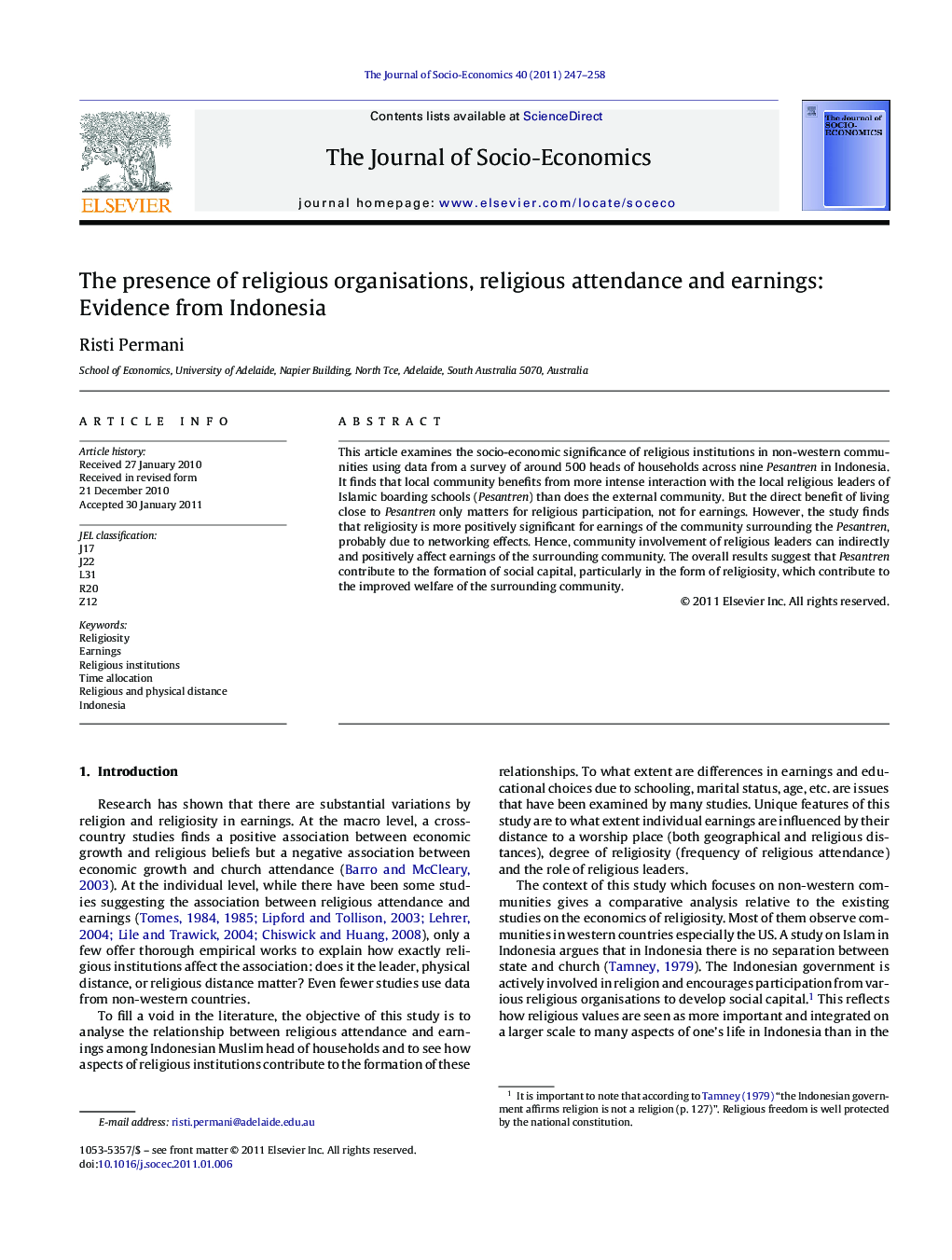| Article ID | Journal | Published Year | Pages | File Type |
|---|---|---|---|---|
| 970415 | The Journal of Socio-Economics | 2011 | 12 Pages |
This article examines the socio-economic significance of religious institutions in non-western communities using data from a survey of around 500 heads of households across nine Pesantren in Indonesia. It finds that local community benefits from more intense interaction with the local religious leaders of Islamic boarding schools (Pesantren) than does the external community. But the direct benefit of living close to Pesantren only matters for religious participation, not for earnings. However, the study finds that religiosity is more positively significant for earnings of the community surrounding the Pesantren, probably due to networking effects. Hence, community involvement of religious leaders can indirectly and positively affect earnings of the surrounding community. The overall results suggest that Pesantren contribute to the formation of social capital, particularly in the form of religiosity, which contribute to the improved welfare of the surrounding community.
► This article examines the socio-economic significance of religious institutions (Pesantren) in Indonesia. ► Overall, Pesantren contribute to the formation of social capital, particularly in the form of religiosity. ► Religiosity matters for earnings of the community surrounding the Pesantren. ► Local community benefits from more intense interaction with Pesantren leaders.
